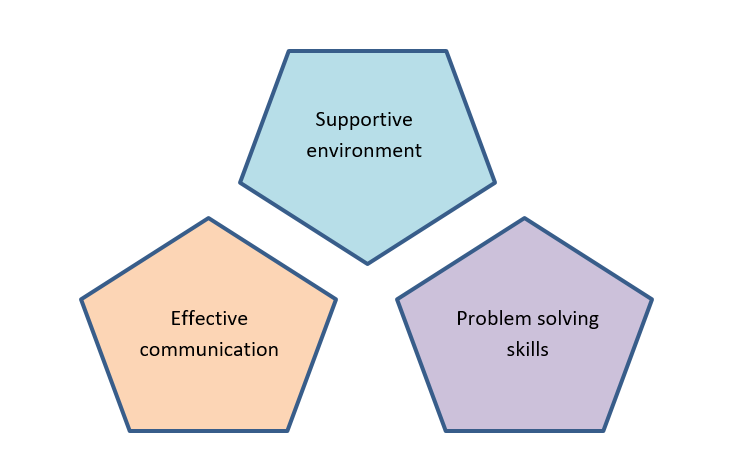Conflict resolution
Conflict can be caused by a disagreement or an argument between people. Conflict resolution is a way for them to find a peaceful solution. Conflict is a part of life, at school and beyond. Schools need to actively nurture the skills students need to build supportive, sustainable relationships and resolve disagreements. How we teach and model conflict resolution impacts on all aspects of student wellbeing, including social and academic outcomes.
Learning to manage conflict reinforces the notion that solutions are possible. It develops skills in pro-social behaviour, negotiation, assertiveness, co-operation and effective communication. It also promotes social and emotional competencies such as empathy, compassion, respect for others and emotional awareness.
Facilitating conflict resolution
- Create a safe space.
- Be a positive role model.
- Help students to understand what the other person is feeling.
- Encourage empathy.
- Help students to manage their own feelings.
- Teach calming strategies.
- Use ‘I’ statements.
- Avoid hurtful words, teasing and name calling.
- Talk through the problem with the other person.
- Listen to the other person’s point of view.
- Repeat back what has been said to show understanding (reflective listening).
- Be kind.
- Create a list of several possible solutions.
- Explore possible consequences of these solutions.
- Explain what it means to be flexible and to compromise.
- Try to achieve a solution that is seen as fair by everyone.
- Encourage students to agree on a solution and give it a try.
Conflict resolution programs
Conflict resolution sits within a restorative practices approach. There are many programs and practices that include conflict resolution skills, such as values education, character education, citizenship education, peace education and social-emotional learning programs.
More information
To find out more about co-operative learning, see the What is Restorative Practices content.
Additional information on mediation in schools can be found in this Fact sheet - Mediation in schools (PDF 186KB).
Links to resources
To provide feedback on this resource, please complete the Feedback form.
